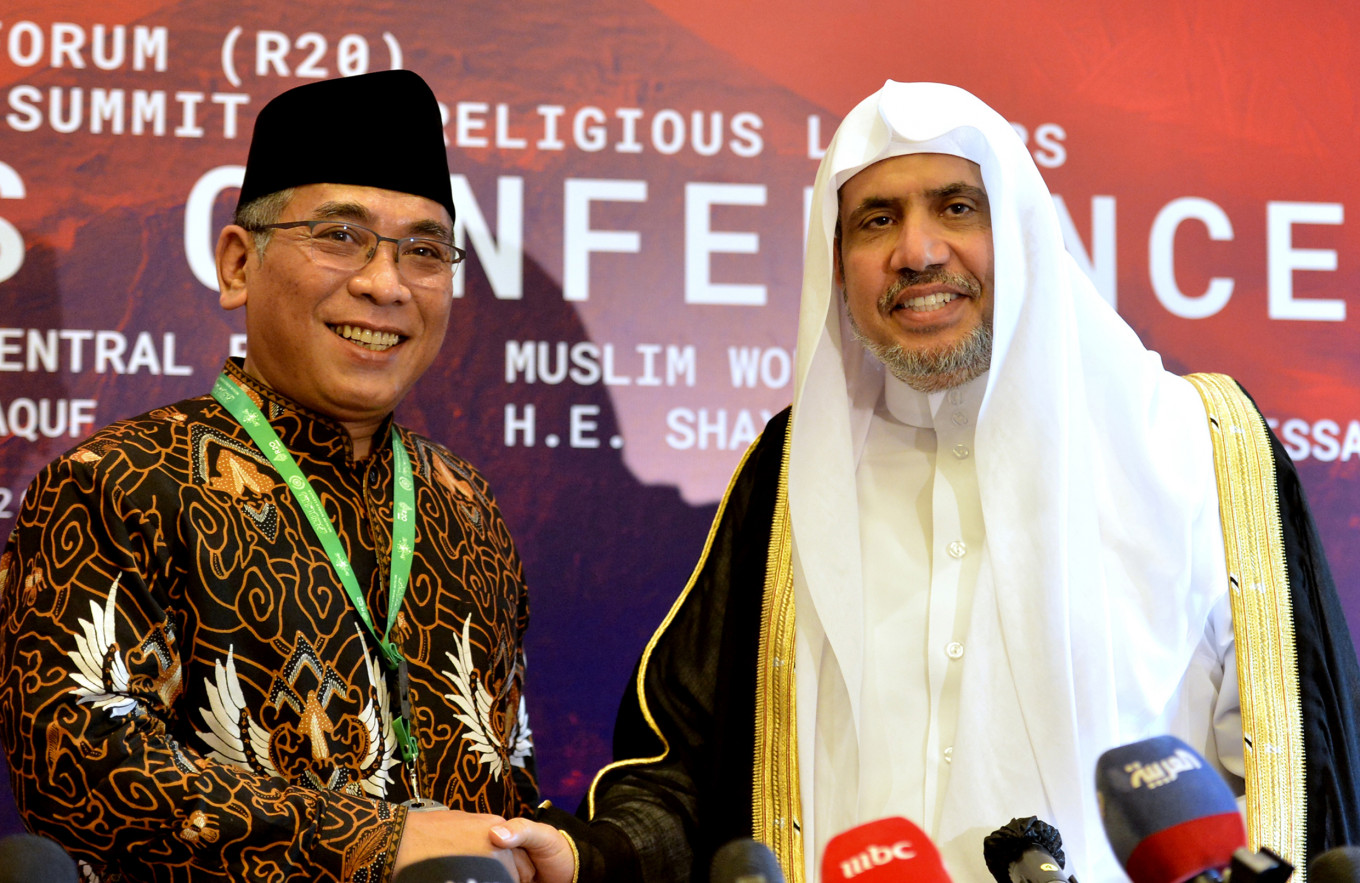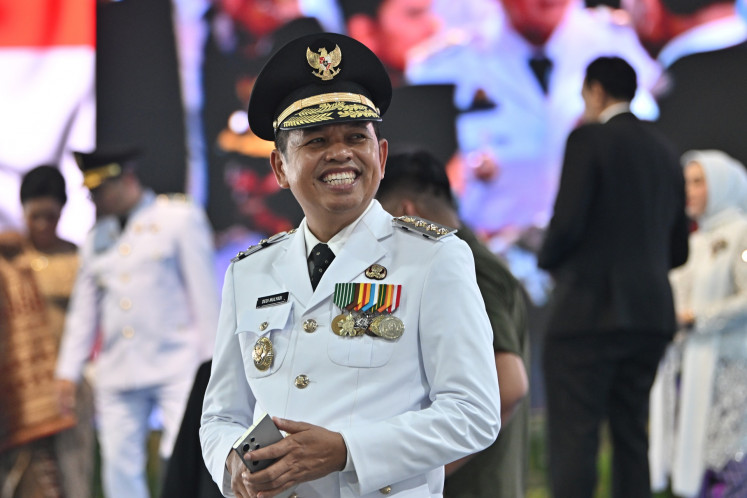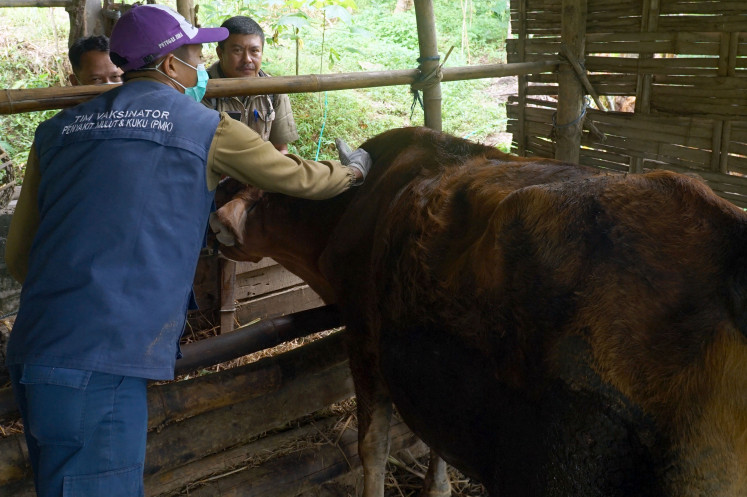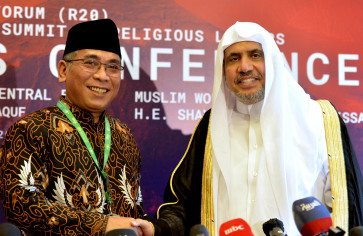Popular Reads
Top Results
Can't find what you're looking for?
View all search resultsPopular Reads
Top Results
Can't find what you're looking for?
View all search resultsR20 summit concludes with calls to modernize faith
Change text size
Gift Premium Articles
to Anyone

As the Group of 20’s first Religion of 20 (R20) summit drew to a close on Thursday, religious leaders concluded that modern problems called for modern solutions, as pressure grows for a recontextualization of religious values.
Much of the two-day summit in Bali involved dozens of faith leaders seeking ways to strike a balance between loyalty to religious tradition and relevance in the modern world.
One solution, posited by Ulil Abdallah, chair of the Nahdlatul Ulama (NU) Institute for Studies and Human Resource Development, involved reinterpreting religious texts.
“[Islam] inherited this rich tradition from texts. But the problem is these texts were written in very different contexts and different situations. Our challenge today […] is to rethink, reinterpret and reevaluate our understanding of them,” Ulil said at a session on Thursday.
To this end, Ulil said, NU had initiated in August a series of some 250 seminars held across the country where Muslims clerics were invited to “reread and rethink our tradition”.
“[We are] trying to criticize and recontextualize our own tradition. I think this will produce a new generation of clerics who can contextualize Islamic tradition in the confines of modernity,” he added.
Concurring with Ulil, Alan Brill, a rabbi and professor of Judaism in the United States, said religious leaders needed to be firm and take a “forward” stance in recontextualizing ancient texts.



















